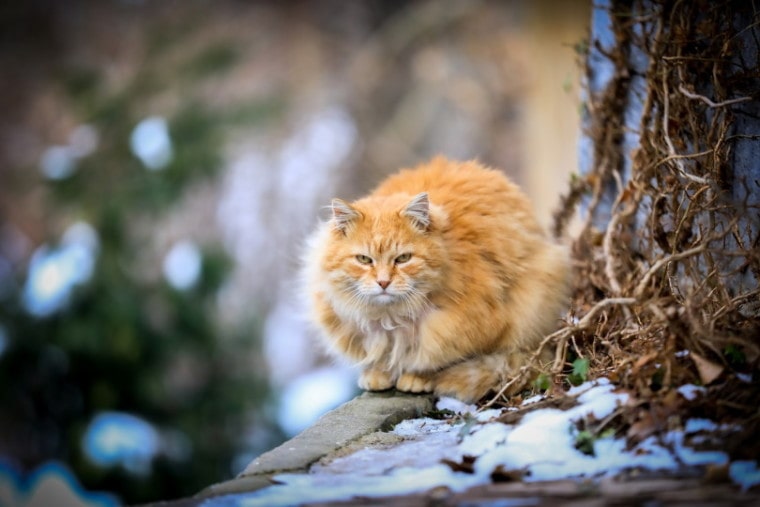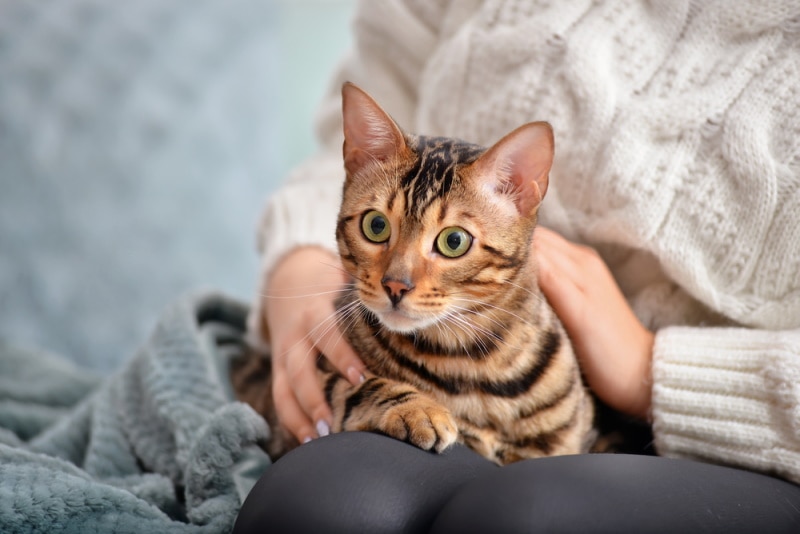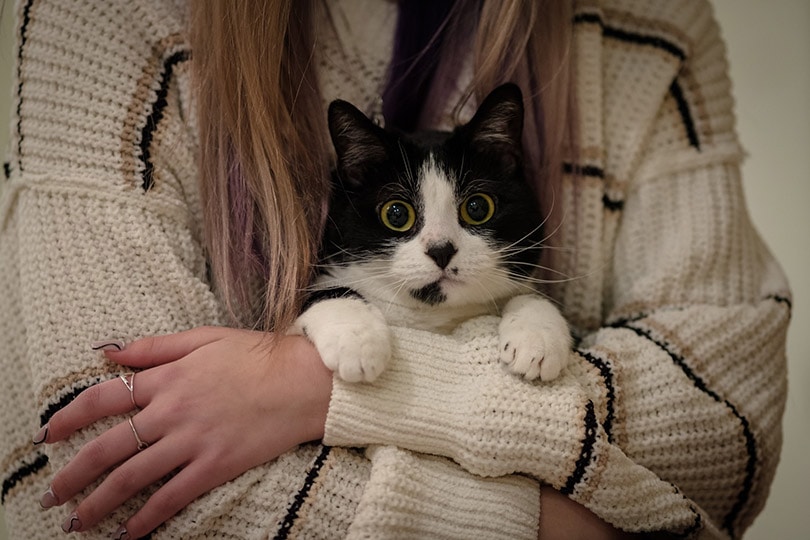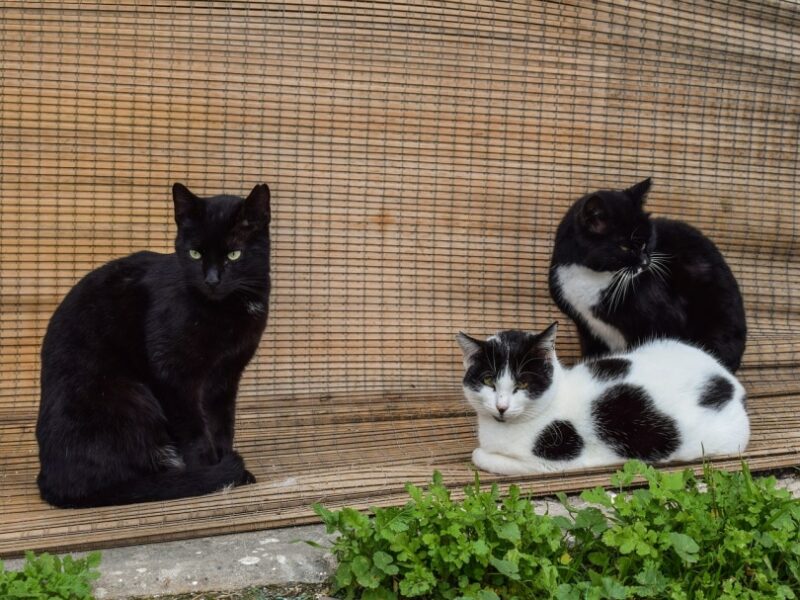
Despite their seemingly wild and untamable nature, domestic cats are among the most popular pets in the world. A third of American households have cats, and over 600 million cats live with humans all over the world.
Cleary, we love cats, but do they need us? Could cats survive in a world without humans? In most cases, yes.
The Domestication of the Cat
Cats are grouped in with other companion animals and livestock, such as dogs, cows, pigs, and goats that are considered domesticated. Still, the way cats were domesticated is a little different than these other animals.
A dog, for example, is genetically different from a wolf and technically a subspecies. They’ve transformed significantly over their 30,000 years of living with humans. They show clear indicators of animal domestication, including decreased tooth size and a docile nature.
Instead, cats have what biologists refer to as a “highly conserved ancestral mammal genome organization.” This means that stretches of their genome haven’t changed much over their evolutionary period. They’re not that different from their wild counterparts.
So, cats may not be domesticated in the sense that a dog is domesticated, but they are tame. Humans have lived with cats much longer than cats have been considered domestic pets. Remains have been discovered in Cyprus with a wild cat buried alongside its human.

Do Cats Need Humans?
Cats may not be under our spell the way that dogs and horses are, but they do rely on humans. Anyone who owns a cat knows that they have learned how to get what they want, such as meowing for food or to get attention.
There’s a key difference, however. Cats bond with their owners and love them, but they don’t strictly need them for safety and security. They don’t view owners as parental figures like a dog might. Instead, they’re more independent and solitary, which would work in their favor if humans vanished from the earth.

A Case for Independence: Feral Cats
Unowned cat populations are a problem all over the world. In the US alone, there’s an estimated 70 to 100 million unowned cats. These populations may be stray or semi-feral cats, which were once owned by humans or had parents that were, or true feral cats, which are essentially wild cats.
There’s a big difference between these two types of unowned cats. Strays or semi-feral cats may have had care from humans, so they rely on community caregivers for food and shelter. Feral cats can survive entirely without human intervention.
Unfortunately, that independence comes at a cost. Feral cats live short, difficult lives, sometimes only a few years, due to disease, car accidents, or other causes. These cats may be predators to small native wildlife, but they’re also prey for animals like domestic dogs, coyotes, or even raccoons.
Feral cats may also have non-fatal injuries that take their lives prematurely in the absence of veterinary care. They may succumb to injuries or become unable to hunt and provide for themselves, leading to their death.
But based on sheer numbers, cats are survivors. These feral populations adapted to the outdoors in all types of climates, weather conditions, and locations, ranging from the country to crowded urban streets.
They breed in high numbers, with a single pair producing three litters with a total of 12 kittens each year. In just seven years, that pair and their offspring can produce a total of 420,000 kittens. Naturally, only the fittest cats would survive the rough streets to breed, building a stronger population overall.

The Verdict
Based on the unique aspects of cat domestication, their independence compared to other domesticated species, and the strength of feral cat populations, it’s highly likely that cats would survive in a world without humans. Though street cats have short, difficult lives, it would only take a few generations to produce strong, capable cats that can thrive in the wild.
Featured Image Credit: ilyessuti, Pixabay






